|
Last night I had an amazing experience at The Kotel (Western Wall). I haven't been able to say that for some time. As I made my way into the Ancient City of Jerusalem, I joined in a throng of people headed to the wall that most closely resembled the crowds heading into a football stadium on Game Day on college campuses across America. The wall has been a flashpoint ever since Israel took control of the old city 50 years ago. In recent years, I have become much less comfortable praying at the wall both because praying to a wall seems somewhat un-Jewish and due to the horrendous treatment of women by the Western Wall Heritage Foundation (which oversees the wall), which is a חילול ה׳ a desecration of God's name. But last night, I gathered with tens of thousands of Jews at the wall for Selichot, the penitentiary prayers said in the days leading up to Yom Kippur, the day of judgement. If you were able to get close enough to the wall there were still the divided men's and women's sections, but where I was standing there was a true ערב רב, a mixed multitude of people. Ultra-orthodox men stood next to secular women and vice versa. Jews whose families came to Israel from Iraq and Morocco stood shoulder to shoulder with those who arrived from Poland and recent immigrants from America. We stood together in prayer, collectively chanted חטאנו לפניך רחם עלינו (we have sinned before you, have mercy on us). In the Avodah service read during the late morning (or early afternoon) on Yom Kippur we recall how in the days of the Temple the high priest would go into the holy of holies and pronounce the name of God, and when he would do so the Israelites in the courtyard would respond with a formulation found in the Torah as God's own description of Godsself:
ה׳ ה׳ אֵ֥ל רַח֖וּם וְחַנּ֑וּן אֶ֥רֶךְ אַפַּ֖יִם וְרַב־חֶ֥סֶד וֶאֱמֶֽת נֹצֵ֥ר חֶ֙סֶד֙ לָאֲלָפִ֔ים נֹשֵׂ֥א עָוון וָפֶ֖שַׁע וְחַטָּאָ֑ה וְנַקֵּה֙ “The LORD! the LORD! a God compassionate and gracious, slow to anger, abounding in kindness and faithfulness, extending kindness to the thousandth generation, forgiving iniquity, transgression, and sin״ Two thousand years later, I stood on the same ground, just outside the courtyard where they would gather. I recited that same formula, word for word, with a massive Jewish community gathered for the same purpose, to seek atonement. We did not come together to worship a Wall, but in this moment the Wall served the same purpose the Temple did 2,000 years ago: it became our common focal point, the gravitational center that brought us all together. To be clear, the Jewish/Israelite community of the Second Temple period was far from perfect. The infighting amongst factions and the disrespect showed to fellow Jews ended up being the downfall of the Temple that once stood upon this mount. As we begin the Yom Kippur fast let us open our ears to the timeless call of Isaiah, who lived in Jerusalem and saw with his own eyes the destruction that comes when Jews do not care for those who need help most: "Is this the fast I desire?" Isaiah calls out to us during the haftorah reading on Yom Kippur morning, "A day for people to starve their bodies?" "No," he responds, "It is to share your bread with the hungry, And to take the poor into your home; When you see the naked, to clothe him, And not to ignore your own kin." I hope against hope and I pray with all my heart that the year 5778 will be a year that brings us together as a Jewish people and as a human race. That it will be a year when we differentiate ourselves from our ancestors by choosing love and compassion over fear and strife and סינת חינם (senseless hatred). That it be a year that we dedicate ourselves to bringing more justice, more light, and more truth into the world. In the words of R' Natan Sternhartz: May all who live on earth come to realize realize We have not come into being to hate or to destroy. We have come into being To praise, to labor, and to love. Wishing a meaningful Yom Kippur to all those who will be observing and a meaningful year to us all. גמר חתימה טובה בספר החיים, בספר רפואה, בספר שמחה, ובספר שלום May we all be written and sealed in the book of life, of good health, of joy, and of peace.
0 Comments
שנה טובה (Shana Tovah) A happy new year to everyone! It's been quite the year transitioning to rabbinical school, and I'm going to do my best to keep the site a bit more active this coming year. To start the year, I wanted to share something a bit more serious than the normal fare here on The More Jew Know. The following is a personal reflection I shared last year from the Bimah (the "stage" at the front of the synagogue) on the second day of Rosh Ha'Shannah at Beth Israel Congregation in Ann Arbor, Michigan. It's a lot more words, and a lot fewer gifs than you're used to if you come here often, but I hope you find it meaningful. I started trying to write about the sounding of the shofar, but I’m going to do something a little bit different. I’m going to speak to you about a still small voice. A קול דממה דקה (Kol Dmama Daka). This is a voice that is only heard immediately after the shofar stops its call... and it reaches out to us through the silence that follows. We learn about this voice in the Unetane Tokef, the prayer we say during the musaf amidah when the chazan chants that a שׁוֹפָר גָּדוֹל יִתָּקַע!! A great shofar will sound!! וְקוֹל דְּמָמָה דַקָּה יִשָּׁמַע. And a still thin voice will be heard. And then the imagery that follows is both fantastic and terrifying: מַלְאָכִים יֵחָפֵזוּן Angels will hasten, וְחִיל וּרְעָדָה יֹאחֵזוּן a trembling and terror will seize them. What is it about this still small voice that makes it more impactful than the great blasts of the shofar? Why are the angels trembling with terror from this kol dmama daka? In the bible, the only place we hear of a kol dmama daka, the still, small voice, is in the book of מלכים, Kings, when Elijah is alone on the top of Har Carmel in northern Israel. Like our post-shofar silence, the kol dmama comes to Elijah only after his senses have been assaulted. First with a strong wind, then an earthquake, then a fire. Elijah looks and listens for God in each of these, but “the LORD was not in them.” When the voice, the small still voice finally comes, it asks him “מַה-לְּךָ פֹה אֵלִיָּהוּ” What are you doing here Elijah? It is that question, that haunting question that is there in the air hanging after we hear the sound of the shofar. “What are you doing here?” “What am I doing here?” Some years our answer to that question seems very clear, other years it’s half formed, and some years we are at a complete loss. But for that moment, that sweet and terrifying instant, when the קול דממה דקה talks to us, questions us, demand that we face this most basic question, that is the essence of ראש השנה (Rosh Hashannah) for me. But then why bother with the shofar at all? Why is it that we cannot simply all sit silently and wait to hear this still thin voice? Why not simply meditate in silence and wait for its appearance? Why do we only hear the קול דממה דקה, the kol dmama daka, after the שׁוֹפָר גָּדוֹל יִתָּקַע (shofar gadol itaka) the great blasts of the Shofar? Is it because you truly can’t have one without the other? For one thing, the Torah refers to Rosh HaShannah as Yom Truah, the day of blasts, so it would be difficult to blow it off completely. But that’s not the only reason for the sounding of the shofar… I don’t know about any of you, but when the shofar blows it consumes my mind and body. I am able to focus solely on the sound of the ram’s horn, feeling its vibrations in my bones, and when it ends I feel as though I am partially empty, like I had just been filled with this magic, transcendent substance that has been all of a sudden flushed away, leaving behind a shell, a cavity. It is into that space that the kol dmama daka comes in. Without allowing ourselves to become lost in the sound of the shofar letting it fill us up with its sound, we cannot make space for the still and small voice. So when the shofar sounds now, try to lose yourself in its call and be ready for the silence immediately after, when the קול דממה דקה (kol dmama daka) comes to ask us, “why are we here?” Wishing a sweet new year to all those celebrating, and may we all be inscribed in the book of life!
שנה טובה ומתוקה!!! Shana Tovah U'Metukah!! |
About the JewThe Jew is an Uber driving, Bar Mitzvah DJing, yoga teaching ex-journalist from Ann Arbor, Michigan who attends rabbi School in NYC. Archives
October 2018
Categories |
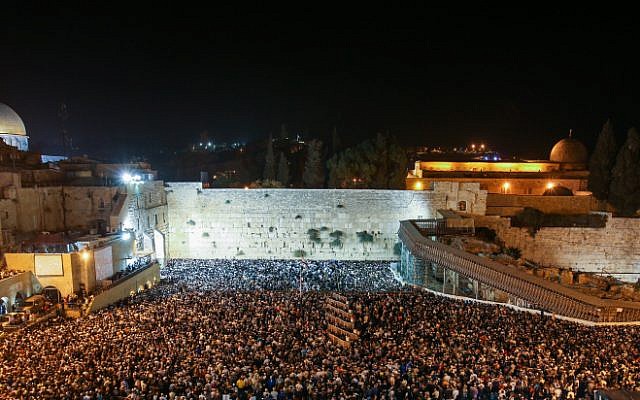
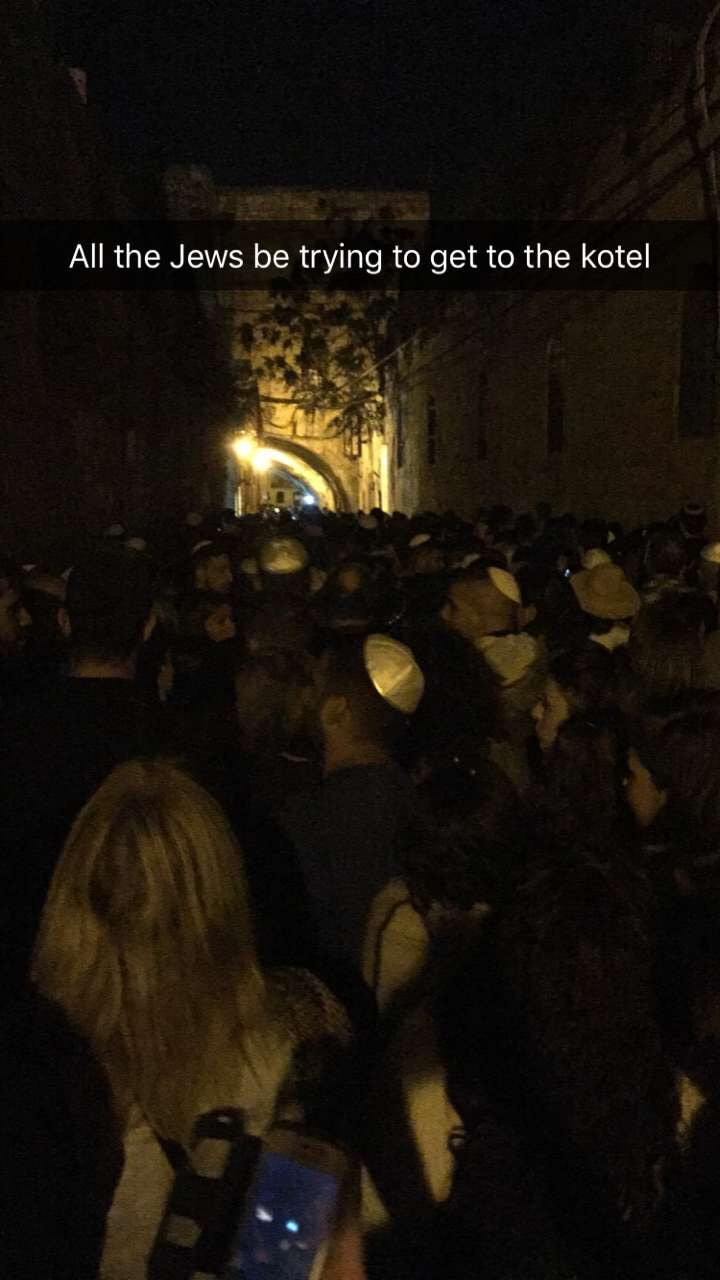
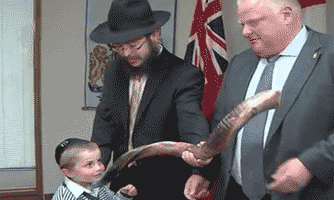
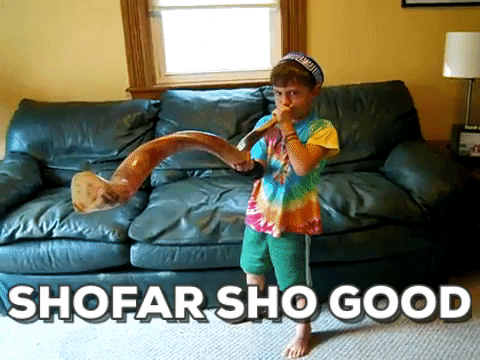
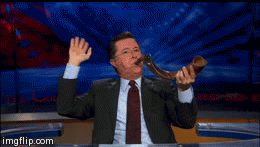
 RSS Feed
RSS Feed
